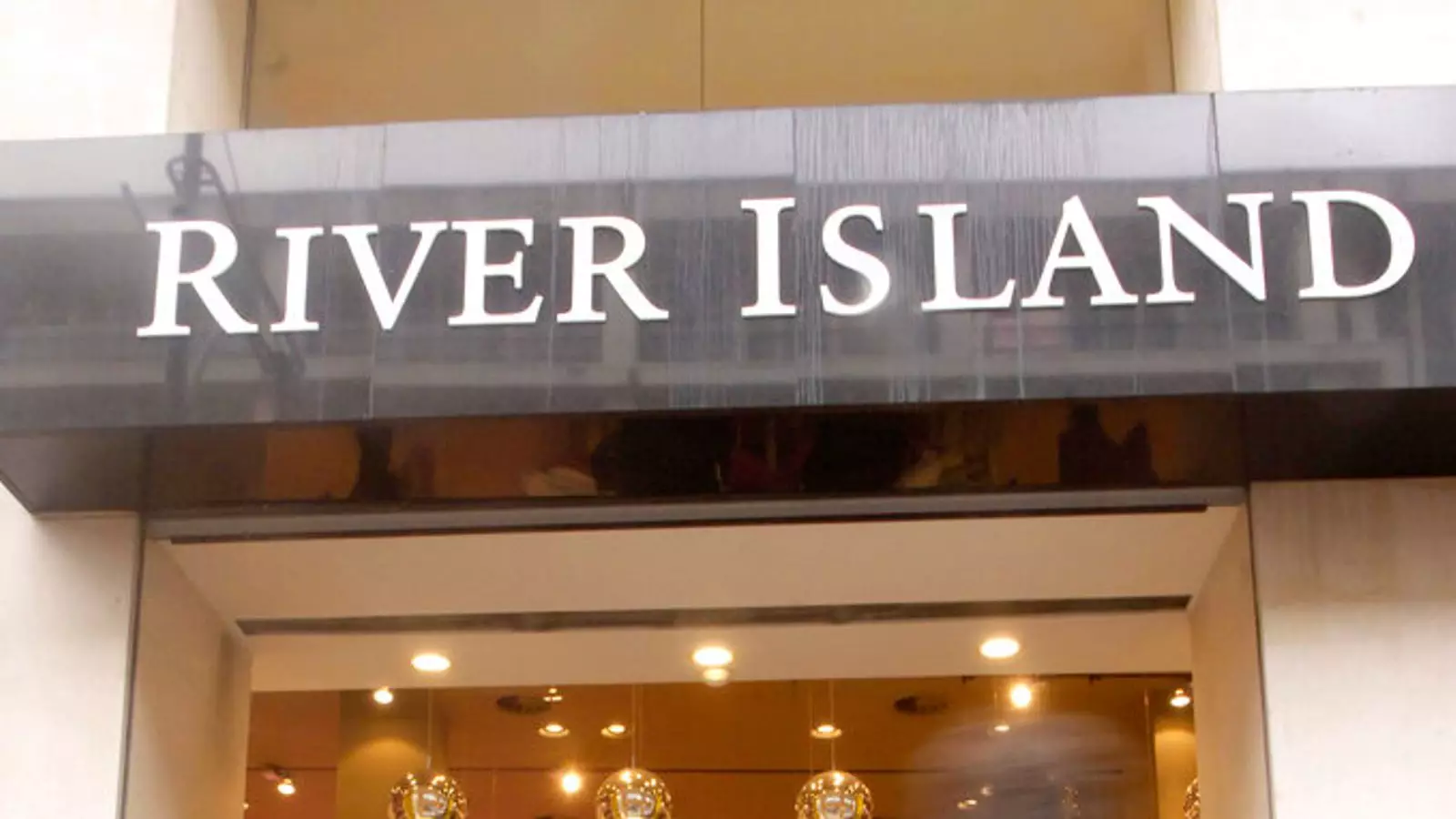As one of the United Kingdom’s pioneering fashion chains, River Island finds itself at a precarious crossroads, embroiled in financial turmoil that starkly illustrates the unpredictable landscape of modern retail. Originally founded by Bernard Lewis in 1948, River Island has garnered a reputation over the years for trendy pieces that resonate with a broad customer base. However, the familial legacy of this iconic brand is jeopardized by substantial pre-tax losses amounting to £33.2 million. With turnover plummeting by over 19% to £578.1 million, it’s evident that the brand is struggling to navigate an increasingly competitive market. The allure of shopping has rapidly shifted, leaving River Island scrambling to meet the expectations of a digitally savvy consumer base.
The announcement that the retail giant has engaged the advisory services of PricewaterhouseCoopers (PwC) for a formal restructuring plan underscores a desperate attempt at survival. While these types of plans can be pivotal in averting insolvency, they inevitably cast a long shadow of uncertainty over job security and the overall existence of physical stores. This retail giant, with approximately 230 stores and 5,500 employees, is now standing on the precipice of a significant transformation, driven by a desperate need to align itself with the shifting preferences of the consumer landscape.
Challenges of a Digital Age
The alarming statement from River Island Holdings Limited concerning its operational risks rings true in today’s fast-evolving marketplace. The retail environment is not just competitive; it is volatile and unforgiving. With consumer preferences pivoting towards more diverse, speedy, and convenient shopping experiences, brands like River Island must innovate or perish. The rise of digital commerce has not only transformed the way consumers shop but also intensified competition in a severely disrupted market space.
This is especially evident as River Island now faces the dual pressures of rising inflation and geopolitical events impacting supply chain efficiencies. The turmoil of the past few years has led to disruptions that many cannot financially withstand. The increasing operational costs associated with energy, labor, and raw materials further complicate any efforts at reclaiming a stable financial footing. Such challenges are not anecdotal; they paint a broader image of a sector in distress, compelled to adapt to survive, as evidenced by similar restructuring moves from fellow retailers like Prezzo and Hobbycraft.
Implications of Restructuring Attempts
Should River Island proceed with a restructuring plan, the implications extend far beyond its stores and employees. When reshaping a business, traditional retail models are inherently placed under scrutiny, and fundamental changes could destabilize communities economically reliant on the stores. With anxieties about how many stores could close and how many jobs may be lost, the prospects paint a grim picture not only for River Island’s workforce but for local economies that thrive on retail presence.
Moreover, the precarious nature of retail today has been exacerbated by systemic issues — such as tax changes announced by Chancellor Rachel Reeves, disproportionately impacting various retailers, including River Island. Such external pressures illustrate a troubling trend wherein businesses are trapped in a cycle of adaptation or failure. As more brands grapple with similar issues, the question of why consumers are flocking to alternatives now overshadows brand loyalty.
A Call for Responsible Leadership
In light of these challenges, there is a critical need for responsible leadership within River Island. It is essential for the company’s executives to prioritize innovative solutions that not only focus on immediate financial relief but also consider long-term sustainability. Navigating this transformation calls for strategic thinking that resonates with contemporary consumer values, pivoting towards sustainability and community engagement.
More than merely reviving profits, the goal should pivot to reinvigorating the brand’s identity and relevance in the hearts of customers. River Island has the potential to not only adapt but to thrive amidst challenges if equipped with the right vision for a future that honors its rich legacy while embracing the modern ethos of fashion and commerce. The time for bold leadership is now, lest River Island become yet another forgotten relic in the annals of retail history.

